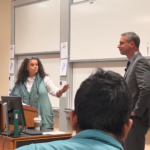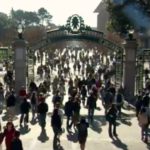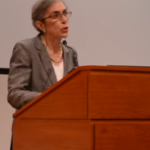Yawning at Subsidiarity
ARLINGTON, VA—One of the most interesting sideshows of the healthcare debate was the dustup between the United States Conference of Catholic Bishops—which opposed enactment because the law subsidizes abortions—and the Catholic Health Association (CHA), which lobbied tirelessly for enactment, claiming that the law does not violate Catholic teaching on abortion.
The bishops had the better of that argument. CHA camouflaged its position by relying on people’s general amnesia about the fungibility of money and taxes—but it clearly cares not a whit about paying for abortions with our tax money.
Both the bishops and the CHA were wrong, however, about the merits of the bill abstracted from the abortion dispute. Ensuring that no federal funds would support abortion would not make the new law acceptable to the Catholic Church’s longstanding social teaching based on the natural law tradition and the principle of subsidiarity embodied in it.
One wonders why so much is made of the “invisible hand” in human affairs when the operations of a divine hand are so visible. The continuum on which these mysterious workings glide is the one extending from the impersonal to the personal. In the fullness of time, as the expression goes, God gets up close and personal.
I am not a philosopher, but I know of none who has worked out the implications of the fact that the Big Bang of philosophy—the lives and thought of Socrates, Plato, and Aristotle—preceded by fewer than five centuries God’s decision to take both personal and human charge of human history. I call that very visible spadework for large fruits.
Fast forward 1800 years. In the colonial backwaters of the empire unable to observe sunsets, another Big Bang occurred, a collectivity of political genius called WashingtonAdamsJeffersonFranklinMadisonEtal. The members of this remarkable group—although theologically regressive in their sympathies with deism and unitarianism and ignorant or contemptuous of the natural law tradition found in Augustine and Aquinas—intuitively grasped and endorsed the central social tenet of that tradition, the principle of subsidiarity. They called it limited, constitutional government in a federal system, a system of divided powers and checks and balances.
The principle of subsidiarity (most explicitly spelled out in Pius XI’s 1931 encyclical, Quadragesimo Anno) rests most substantially on a negative injunction: the roles and functions of society’s smaller elements are not to be taken over by its larger elements. The health and stability of a society are shaped, first of all, out of the virtue and competence of its individual citizens—and then, in descending order, out of solid family life, cultural and economic associations, churches, schools, and the small government entities closest to those citizens and institutions.
But the principle is entirely reciprocal. It is right and proper for larger entities to do those things individuals, families, churches, and other private associations cannot do. It does not violate the principle of subsidiarity for the state of Iowa to build roads to connect its farms with its towns.
Nor is it wrong, as the American Founders understood, for the central government established by the Philadelphia Constitution to coin money, establish post offices, secure patents and copyrights, raise and support an army and navy, regulate foreign trade, and declare and wage war (see Article I, Section 8).
The principle of subsidiarity was in the Founders’ bones, if not in their hearts and intellects. Unfortunately, it no longer animates the federal government they established. If, before, there was doubt on this score, the enactment of healthcare “reform” dispelled it once and for all. In America today, the nanny state is the Red Queen. Off with your head if you do not buy health insurance.
Honoring subsidiarity leads to stable, healthy, organic societies able to survive in a Hobbesian world. Ignoring it leads to societal dissolution.
Sister Carol Keehan, CHA’s president, probably did not have subsidiarity foremost in her mind during the debate. Her position earns her $856,093 per annum, which she turns over to her order. That is more than the top executives of the American Medical Association and the American Bar Association earn. Four of Sister Carol’s top staffers are, combined, paid more than $1 million. Lloyd Dean, the non-Catholic head of CHA West and an Obama donor, earns more than $5 million.
You would think that executives worth that much would be especially foresightful. You would think they would have asked themselves, somewhere along the line: How can this country, already deep in debt and well on the way to making its citizens the economic serfs of the Chinese, afford to add 32 million people, willing and unwilling, to government-subsidized health insurance plans?
How can we afford to do this and continue to prop up the massive regime of entitlements with which we had already gifted ourselves—in complete defiance of the principle of subsidiarity—with Social Security, Medicare, and Medicaid?
Clearly, neither Sister Carol nor the bishops ever asked how many Americans will have secure retirements or decent health care insurance after the American economy goes belly up. Or, for that matter, what will happen to the abortion rates when mothers and fathers are led by tightening economic circumstances to conclude they cannot afford another mouth to feed.
Bishops, show us you still grasp the perennial philosophy of Thomas.
Sister Carol, go read your catechism to remind yourself why God created you. It was not to funnel a bundle to your order.
The Unrepentant Traditionalist archives
The Unrepentant Traditionalist is copyright © 2010 by Frank Creel and the Fitzgerald Griffin Foundation. All rights reserved.
Frank Creel, Ph.D., a columnist and author, was an English teacher in the Peace Corps in Turkey. He is fluent in the Turkish language and in Arabic script.
See a complete biographical sketch.




